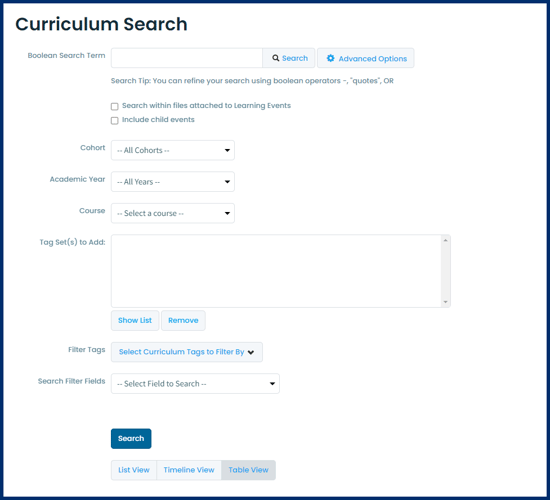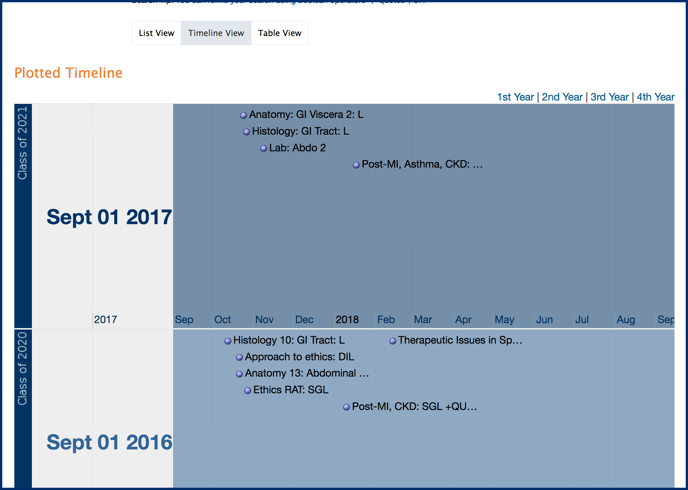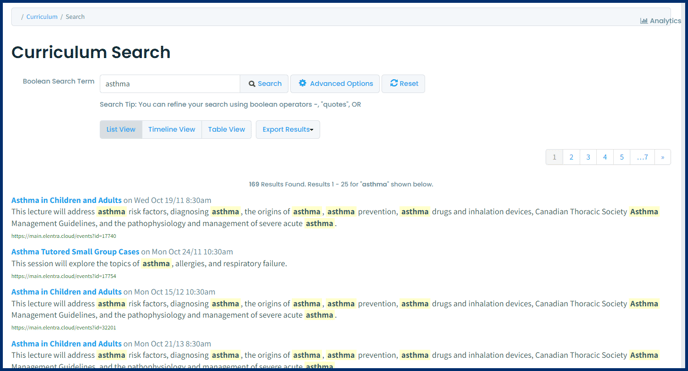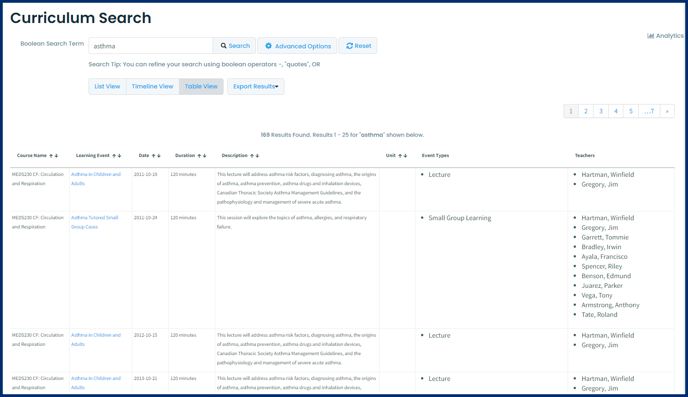Curriculum Search For Learners
In this article you will learn how to use the Curriculum Search.
Article Content
This article covers the following topics. Click on the topic to go to that section of the article.
Curriculum Search Introduction
The Curriculum Search tool is available to all users and uses boolean search terms to look for content within learning events. The Curriculum Search tool does not include assessments. Student users will not see learning events that are not accessible to them due to non-enrollment in private courses, or time-release settings on specific learning events.
- It searches event titles, event descriptions, and curriculum tag names.
- Users can also use advanced options to search files attached to learning events.
You can access the Curriculum Search by clicking on Curriculum in the Navigation Menu, then click on Curriculum Search.

How to Search the Curriculum
Step 1: Navigate to Curriculum > Curriculum Search.
Step 2: Type your search term(s) into the search space.
Step 3: If you want your search results to include files attached to Learning Events, click Advanced Options and click the checkbox located just below the search bar. You can also use the filters to further refine your search.
Step 4: Click Search and your results will display on the screen.
You can toggle between three different views of your search results.
- The List View
- The Timeline View
- The Table View
The List View
- This view shows you a list of all returned events.
- Export your results as desired.
The Timeline View
- This view displays the returned events by cohort on a timeline.
- Scroll through the results or quickly jump from year to year using the links on the right above the timeline.
-
Hover an event for its course affiliation and length.
-
View a total count of results returned per cohort in the Cohort Result Totals menu located in the left-hand sidebar.

The Table View
-
This view shows you course name, learning event, date, duration, description, unit (if enabled), event types, and teachers.
-
Export your results as desired.
How to use Advanced Options
Advanced options let you further refine your curriculum search results.
Step 1: Click the Advanced Options button.
Step 2: Select parameters to apply to your search including cohort, academic year, curriculum tag sets, filter fields, course and weeks (weeks will only appear if units/weeks in enabled in your installation).
- To add a Tag Set, click on the name of the desired tag set and click Add just below the list of tag sets. You can hide this list as desired by clicking Hide List.
- Adding a Tag Set to your search means only events with something from that tag set will be included in the results.
- To use the Search Filter Fields and Search Filter Operator options, imagine creating a sentence to limit your results. For example, "If Event Description is ----", return results. You can create multiple filters to apply to a search and the returned results will only include events that meet the filter parameters.
- The Search Filter Operator options include: is, is not, contains, does not contain, starts with, does not start with, ends with, and does not end with.
- To remove just some of the existing filters, click the small x on each filter card.
- To remove all filters, click Reset. Make sure to click Reset to clear all filters before beginning a new search.
An example of using Advanced Options for searching might be that I want to find all events on a certain topic NOT taught by one faculty member. I may already know that Dr. Greene teaches about heart disease, but I want to find other instances in the curriculum where another faculty member is addressing heart disease. If I search for "heart disease" and add a "Teachers is not Dr. Greene" filter, the results will give me what I want.

